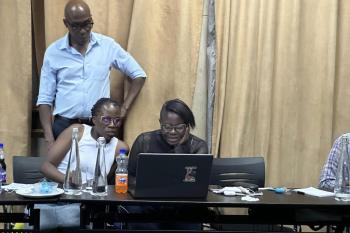ILC: Land rights in the development program for the post-2015
Once adopted, the Sustainable Development Goals (SDGs) of the post-2015 Agenda will shape international and national policies to eradicate poverty and promote development. Over the last several years, many ILC members and partners have been involved in discussions about Targets and Indicators related to this agenda. In Antigua, ILC members asked the Coalition to advocate for the inclusion of land rights in the post-2015 Agenda. This process is currently under way on the basis of ILC's collective work on land monitoring and its mission to promote secure and equitable access to and control over land, as well as the recently approved Antigua Declaration, which defined the concept of people-centred land governance.
This brief is the result of an intense dialogue with ILC members and partners, including a membership-wide consultation carried out in February 2014. This brief, authored by the ILC Secretariat together with the Rights and Resource Initiative and Oxfam, calls for the inclusion of a Target (1) and four indicators (4) on land tenure, by building on and expanding the work done by the Global Land Indicators Initiative, led by the GLTN, an ILC member. This Target and the four indicators measure and a wide array of concerns related to land rights in rural and urban settings, including the need to ensure greater gender equality, considering individual and collective rights, and ensuring a transformative agenda that reaches those most reliant on land-based resources.
It is ILC's hope that this brief can facilitate a broad consensus on this topic. Some ILC members, including the GLTN, have worked on the Post-2015 debate for several months, and from various angles. These contributions are relevant to land governance, all of which contribute to the inclusion of land rights in the Post-2015 agenda. Learn more about submissions by ILC members to the Post-2015 debate here.
Documents
